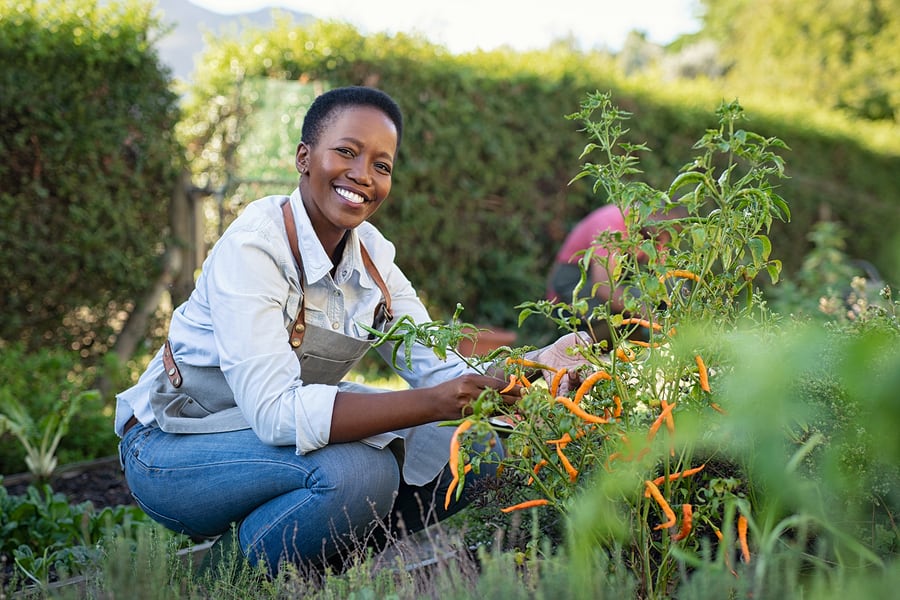Finding a way to become more in tune with the world around you offers amazing benefits. It can decrease feelings of stress and anxiety, clear your mind of unnecessary distractions and increase your ability to manage personal hardships.
For years, clinical professionals have been encouraging their clients to get out more, breathe in the fresh air and let the sunshine hit their face. Getting outside can not only help them physically, but it also has shown tremendous mental health benefits. So, it’s no surprise that a clinical intervention literally rooted in the study of gardening environments has grown in popularity over the past few years.
While the clinical approach itself is nothing new – the study of therapy through gardening has been around since the 1940’s – the use of this practice has become an effective method of treating substance addiction all around the globe.
Understanding exactly what it is and how it is implemented in a clinical environment is a great way to introduce your addicted loved one to a therapeutic intervention that can truly stimulate their personal growth.
What is Horticulture Therapy?
Horticultural therapy is the process of gardening facilitated by a registered horticultural therapist to achieve specific goals within an established rehabilitation environment. This process is used to enhance an individual’s well-being through active or passive involvement in plant and plant-related activities.
What are the Benefits of Horticulture Therapy?
The actual benefits associated with this specific therapeutic approach are very real and extremely beneficial to a person struggling with a substance use disorder.
Horticulture therapy helps to:
• Reduce stress – Studies have shown that being in natural environments can improve how our bodies react to stress. A person suffering from stressors such as health concerns, emotional stress, loneliness and substance addiction can benefit greatly from spending time in a garden. Nature provides a sense of calm and reassurance through growing plants and pleasant surroundings.
• Reduce pain – Spending time in nature can reduce how much people perceive pain. Studies have shown that the sensory stimulation provided in a natural setting can actually keep us from noticing unpleasant feelings, both physical and emotional. This offers a natural pain reliever for those suffering from chronic illnesses, long recoveries and a number of other physical issues.
• Provide a feeling of empowerment – Working in a garden can give an individual a sense of control in their life. Dealing with an addiction can impact your loved one’s feelings of self-worth and personal self-esteem. However, tending to living things can inspire your loved one by helping them to see that their actions can have positive results when properly motivated. They can watch as their flowers bloom or their tomatoes ripen and enjoy a feeling of accomplishment in what they’ve done.
• Improve mood – Recent studies have found that one of the benefits of horticultural therapy is that it improves a person’s mood. One study in particular measured changes in total mood disturbance among cardiac rehab patients who participated in horticultural therapy, compared to a group that participated in patient education classes. Participants in horticultural therapy reported significant decreases in total mood disturbance, while it remained unchanged in the patient education group.
Would Your Loved One Benefit from Horticulture Therapy?
For an individual attempting to overcome a substance addiction, keeping an open mind in relation to therapeutic options and interventions is imperative. For example, some people may respond well to individual therapy on its own, while others need holistic treatments like equine therapy or art therapy to supplement more traditional types of treatment.
Like equine or art therapy, horticulture can help during addiction treatment. This time-tested treatment approach takes very primal methods of addressing personal stress and incorporates them into a clinical setting.
With the help and guidance of a clinically-trained horticultural therapist, your loved one will not simply learn to grow things in a garden, but they will be instructed on how to submerge themselves in a natural environment that is proven to provide relief both physically and emotionally.
For many people, this kind of activity may seem foreign or new, but that doesn’t mean it won’t help. Being willing to try new activities and adjust personal habits is an essential component to any treatment environment. Horticulture therapy encourages these behaviors while also teaching how people and plants share an ancient bond of health and healing.
Holistic Drug and Alcohol Addiction Treatment at Ranch Creek Recovery
As your loved one’s biggest advocate, we understand how important it is for your loved one to get the life-changing help they need to achieve sobriety. They will enter into a healing environment at Ranch Creek Recovery that’s free of distractions and supported by an expert team.
As a leading non-12-step rehab in California, we deliver an alternative, holistic approach to addiction rehab. We focus on tailor-fitting each recovery program to address every patient’s unique needs. With a more intimate recovery experience, a higher level of care, a serene environment, individual recovery plans and a holistic approach, you can be sure your loved one will receive everything needed to achieve sobriety and prepare for a thriving, sober life.
Contact us today to learn more and get your questions answered.
Resources:
American Horticultural Therapy Association. Horticultural Therapy. Accessed March 17, 2020. https://www.ahta.org/horticultural-therapy.













